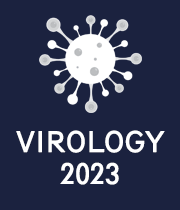Virus as Gene Therapy Vectors
The insertion of specific cell function-altering genetic material into a patient to treat a genetic condition is known as gene therapy. The efficient delivery of genes to the target tissue/cells, which is carried out using gene delivery vehicles known as vectors, is a critical step in gene therapy. Viruses and non-viral vectors are the two types of vectors. The use of viruses for therapeutic purposes has long been done, and virotherapies are a family of viral-based treatments. Perhaps a lack of complete understanding of viral biology was the fundamental reason why prior viral-based medicines failed to attain efficacy. With 40 years of virus research, there are a plethora of intriguing viral vector-based techniques for treating genetic illnesses. There are various successful therapy options for several human disorders.
- Adeno-Associated Virus
- Adenovirus
- Alpha Virus
- Cardiovascular Gene Therapy
- Foamy Virus
- Lentivirus
- Musculoskeletal Gene Therapy
- Oncolytic Viral Vectors

